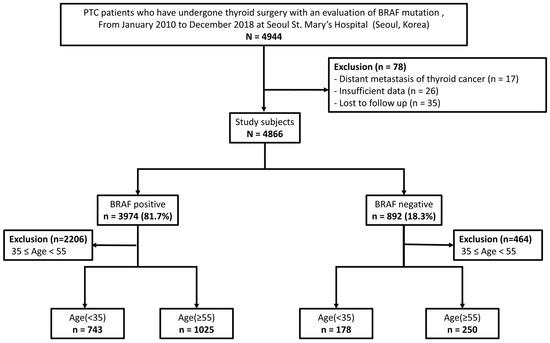Biomarkers of Thyroid Cancer
A topical collection in Cancers (ISSN 2072-6694). This collection belongs to the section "Cancer Biomarkers".
Viewed by 2261Editors
Interests: thyroid molecular pathology/histology/cytology; endocrine pathology; cancer biomarkers; genetics; bone and soft tissue pathology
Special Issues, Collections and Topics in MDPI journals
Interests: thyroid cancer; thyroid pathology; cancer biomarkers
Special Issues, Collections and Topics in MDPI journals
Topical Collection Information
Dear Colleagues,
Thyroid cancer is a heterogeneous disease comprising various molecular and histologic subtypes. Its diverse clinical outcomes highlight the need for identifying robust biomarkers of practical relevance. Biomarkers provide useful information in guiding clinical decision making in patients with thyroid cancer. Biomarkers can be biomolecules such as DNA, RNA, protein, peptide, and biomolecule chemical modifications, or characteristics that can be measured through clinical, pathological, or radiological findings. Biomarkers for thyroid cancer patients are used in research and clinical practice for:
- Diagnosing thyroid nodules and thyroid cancer;
- Predicting outcomes of thyroid cancer;
- Including responses to specific therapeutic interventions;
- Targeting specific groups of patients for whom a particular drug may be useful.
This Collection of Cancers is aimed at presenting the latest research on the diagnostic, prognostic, and theranostic biomarkers of thyroid cancer, as well as the application of biomarkers in clinical trials.
Prof. Dr. Chan-Kwon Jung
Dr. Andrey Bychkov
Collection Editors
Manuscript Submission Information
Manuscripts should be submitted online at www.mdpi.com by registering and logging in to this website. Once you are registered, click here to go to the submission form. Manuscripts can be submitted until the deadline. All submissions that pass pre-check are peer-reviewed. Accepted papers will be published continuously in the journal (as soon as accepted) and will be listed together on the collection website. Research articles, review articles as well as communications are invited. For planned papers, a title and short abstract (about 100 words) can be sent to the Editorial Office for announcement on this website.
Submitted manuscripts should not have been published previously, nor be under consideration for publication elsewhere (except conference proceedings papers). All manuscripts are thoroughly refereed through a single-blind peer-review process. A guide for authors and other relevant information for submission of manuscripts is available on the Instructions for Authors page. Cancers is an international peer-reviewed open access semimonthly journal published by MDPI.
Please visit the Instructions for Authors page before submitting a manuscript. The Article Processing Charge (APC) for publication in this open access journal is 2900 CHF (Swiss Francs). Submitted papers should be well formatted and use good English. Authors may use MDPI's English editing service prior to publication or during author revisions.
Keywords
- thyroid cancer
- biomarkers
- diagnosis
- prognosis
- treatment
- outcome
Related Special Issue
- Biomarkers of Thyroid Cancer in Cancers (30 articles)









